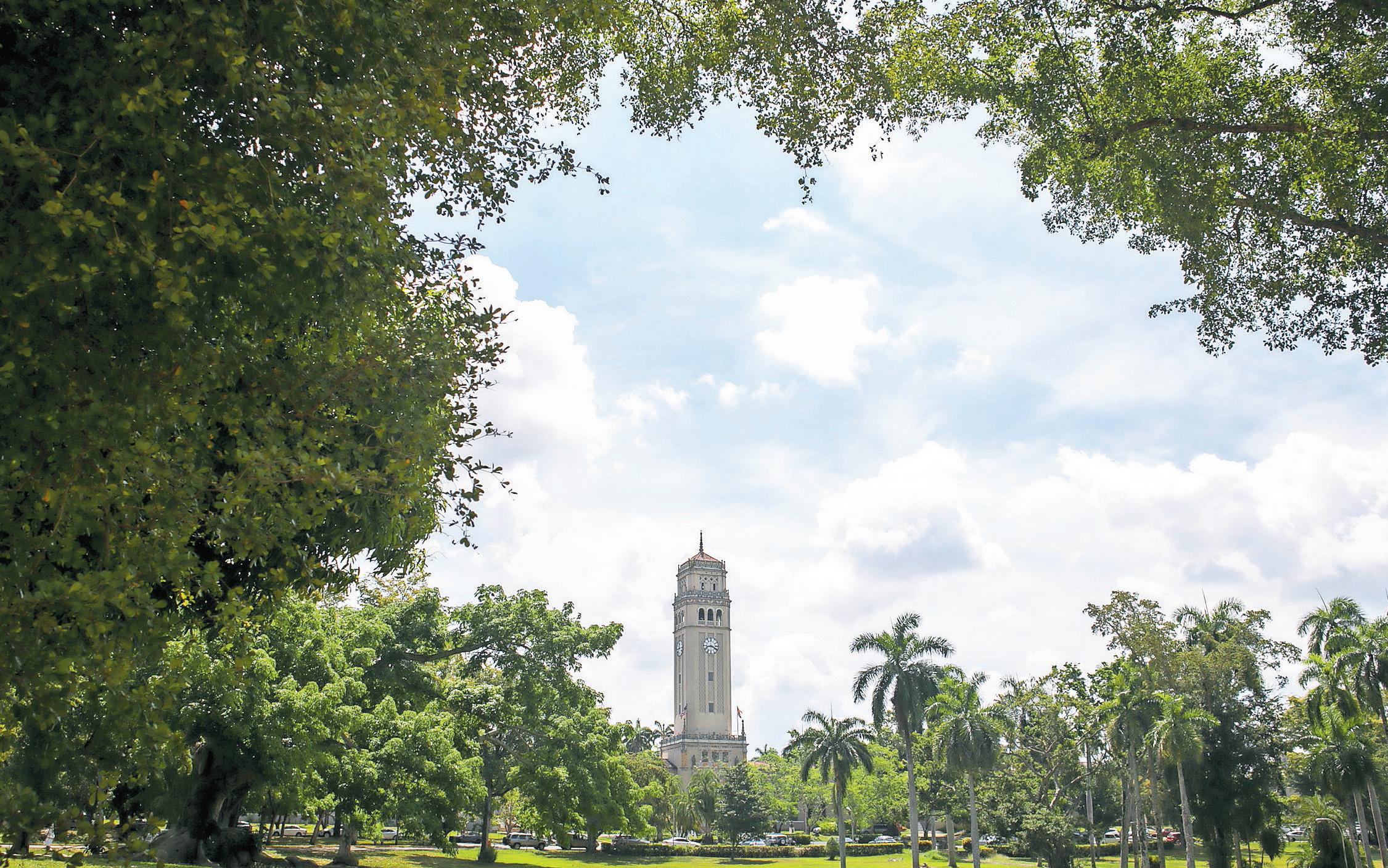
3 minute read
UPR’s Role in economic DeveloPment
UPR’s flagship campus in Río Piedras >Josian E. Bruno Gómez
The Link Between UPR and Economic Development
Advertisement
CNE analyzes UPR’s budget crisis
Rosario Fajardo
rfajardo@wjournalpr.com @RosarioWJournal
An analysis by the Center for a New Economy (CNE) has found that the University of Puerto Rico’s (UPR) continuing crisis is due to chronic budget cuts and the inability of the university’s administration to properly manage its budget woes. Some would even add the administration’s inability to attract external funding and students from outside the island, as Puerto Rico continues to deal with the long-term effects of a decreasing and aging population. According to CNE, during the five-year period from fiscal year (FY) 2017 to FY 2022, UPR has suffered a 48 percent drop in its General Fund income, going from $911 million to $466 million. Yet the university is essential to Puerto Rico’s economic development, researchers said, not only for its important role in higher education, but also “ensuring social mobility” for many people.
The proposed budget cuts at the UPR, as outlined in the university’s Fiscal Plan, would hinder all research and development (R&D) activity in Puerto Rico, according to Raúl SantiagoBartolomei, a CNE research associate & assistant professor at the UPR’s Graduate School of Planning. He indicated that by 2019, 82 percent of total investment for R&D by higher education institutions in Puerto Rico was made by the UPR, while the university itself financed a fifth of the total invested by these institutions. In addition, he said the UPR has several research centers and facilities that are unique in Puerto Rico, such as those focused on coastal research and the Caribbean Primate Research Center.
On the other hand, total investment in R&D in Puerto Rico reached 0.54 percent of the Gross Domestic Product (GDP) in 2017, a figure that pales in comparison to the United States (2.79 percent of GDP) and the leading countries, South Korea (4.3 percent of GDP) and Japan (3.2 percent of GDP). For another fellow academic, the UPR as an institution has been seriously damaged, both by the magnitude of the budget cuts “imposed” by the Financial Oversight and Management Board (FOMB) and by the university’s administrators’ lack of imagination in handling the crisis: together they have created an institutional paralysis, according to Jorge L. Giovannetti-Torres, an associate professor of Sociology at UPR.
He said that the budget cuts have been enforced without rethinking or restructuring the UPR as a system. One of the detrimental effects of this situation is that the faculty has seen its opportunities for research and publication reduced. Both are essential elements to increase prestige and attract external funds and students to the UPR, which in turn are critical to reverse the current situation.
The UPR should have a central role in shaping the future of the island and be the main referent for public policy and social discussions on issues ranging from global warming and crime to economic and sociocultural development, Giovannetti said. “The need for institutional reforms at the UPR is urgent, but these should be aimed at creating a research university, capitalizing on the prestige and strengths of the institution, rethinking the campuses, seeking academic and administrative synergies, and strengthening the spaces for the creation of knowledge, research and international projection.”
These were the main points of discussion in the August issue of the CNE Review, which focuses on the impact of the central government’s bankruptcy on the island’s main public university and other aspects of the institution’s crisis.
Among the issues addressed in the publication are: how the FOMB, an unelected body, has radically and unilaterally changed the terms of the Puerto Rican social contract; the relationship between higher education, investment and economic growth; and some of the research projects that have been put at risk by budget cuts. The administrative, financial and operational challenges of the UPR are also analyzed, as well as the role that public universities have in promoting R&D in other countries around the world.



